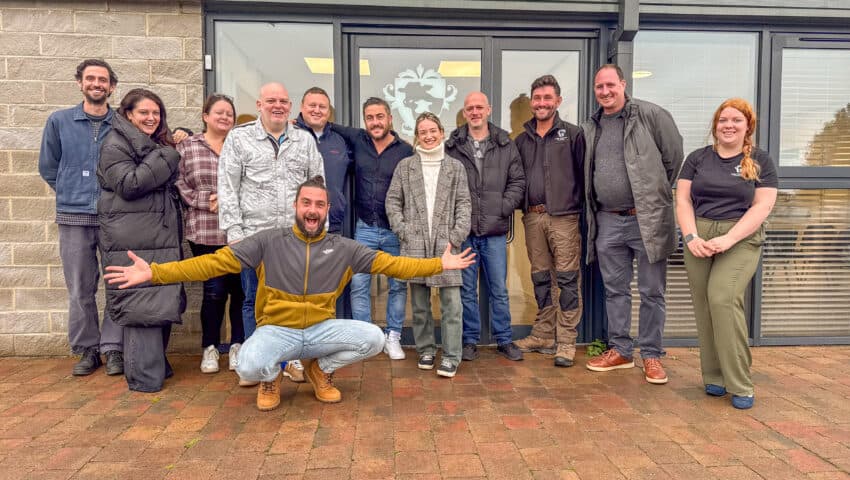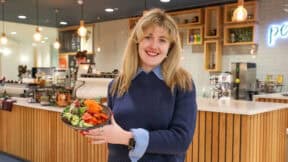Blogs
I am not trying to change the world; I am trying to feed my local community.

In supermarkets, meat is often judged solely by its weight, cut, and fat content. That’s what most people see, and for chefs, these details matter. The right fat and cut can make a big difference in a dish. But sometimes, animals are treated as just numbers.
Lake District Farmers, our supplier partners, work closely with local farms to bring real connection back to the meat industry. Farmers understand that not every detail can be controlled, steaks won’t always look the same. The real skill lies in respecting the animal and making the most of every cut.
Quality matters too. Our partners help farmers restore wild plants and native trees. They replant wild grasses to build healthy soil, plant hedgerows for biodiversity and shelter. Graze animals in rotation, allowing fields to recover. By grazing as nature intended, livestock ingest nutrients from natural sources. This leads to tastier, healthier meat. Generating savings for farmers through lower vet bills and reduced reliance on artificial fertilizers. This means our clients and customers can enjoy food that’s better for them. While farmers are inspired to continue using sustainable practices.
Why we travelled all that way
It’s all about building connections. Our team spent time in the fields, talking with farmers and learning how they use natural, sustainable methods instead of industrial farming. Lake District Farmers work with people who care deeply about animal welfare and the environment.
These experiences will shape our chefs and our menus for years to come. Meeting the farmers and seeing their passion helps us understand and respect our ingredients even more. That passion flows from the farmers to the butchers, to our chefs, and finally into the food we serve.
Biodiversity, soil, and longevity
We often opt for “cheaper” ingredients at home because of cost. However, this ignores the hidden environmental price: soil depletion, carbon loss, reduced animal welfare, and potential food system collapse. Sometimes, what seems cheaper today turns out to be far more expensive tomorrow.
We heard how policy changes have pushed overgrazing and dependency on subsidies, and how shifts in grain supply threaten British farming. We stood among Hereford and Angus cattle, often outdoors year-round, allowed to grow and mature naturally in a calm environment, producing more tender, higher-quality meat.
Lake District Farmers are guiding farmers to reimagine farm life. Farmers are splitting vast, formerly intensive fields into smaller plots to improve rotation and increase soil sequestration.
Farmers are planting dense, diverse hedgerows that teem with life, providing natural shelter for wildlife and enriching the soil. They’re turning to nature-based solutions like willow planting to strengthen animal health and reduce reliance on antibiotics. Cattle roam and graze freely with minimal intervention, expressing their natural behaviour and thriving in a more balanced ecosystem.
By engaging in these regenerative practices and promoting reforestation, farmers are supporting soil health through natural nutrient redistribution, while also providing shelter for animals and protecting the land from erosion and flooding.
During the visit, our chefs examined a soil sample alive with deep roots and earthworms, clear signs of thriving land. They touched and smelled the soil, recognising its rich, earthy scent as a marker of vitality. They saw firsthand how deep roots anchor the land, reduce erosion, and lock carbon safely in the ground instead of releasing it into the atmosphere.
We also heard how farmers are rewetting peatlands, a vital conservation effort that not only promotes biodiversity but transforms a carbon source into a carbon sink. Every buying decision has an ecological and social consequence; healthy soil equates to nutritious food.
Our chefs now have the knowledge to think beyond recipes, to consider food security and support sustainable systems.
Walking back with purpose
After 24 hours of muddy boots, grubby fingernails and with new stories to tell, our chefs returned more informed and deeply committed. Supporting local farmers through thoughtful food choices helps create a more robust food system, offering farmers financial stability while fostering business models built on environmental stewardship and animal welfare.
We create great food by acting with integrity, leading with stewardship, and shaping every dish with vision, starting not in the kitchen, but in the fields where it all begins.Understanding our food’s identity, the culture of the farmers, and where our ingredients come from is crucial for sustainable supply chains.
Investing in local farmers who are at the pinnacle of food quality and sustainability is fundamental, not just to offering great food, but to feeding our communities and future generations.





